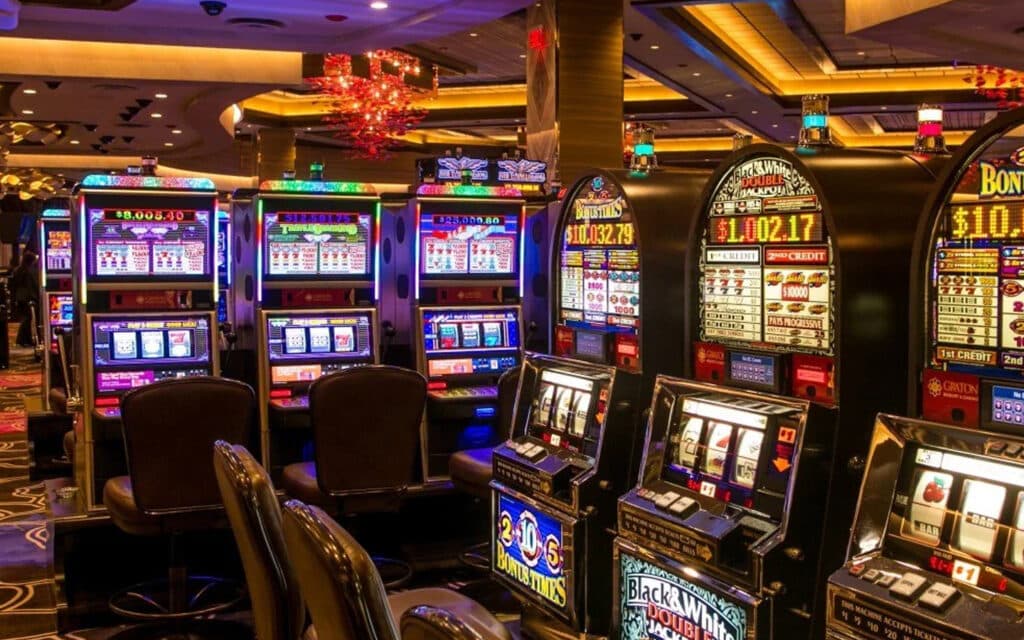
Casino entertainment have long been a significant aspect of human culture, providing not just entertainment but a captivating reflection of our hopes, dreams, and anxieties. From the spinning reels of a slot machine to the strategic gameplay of poker, these games encapsulate a variety of human sentiments and events. At their core, casino games are more than a chance to earn cash; they are a snapshot of life itself, where danger and gain intertwine and fortunes can change in an instant.
As players convene around tables or sit in front of brightly lit machines, they engage in a tradition that transcends mere gambling. These games echo our natural desires for social interaction, adventure, and the search for fortune. They also disclose deeper truths about human behavior, such as our relationship with chance and the adrenaline of risk. In exploring casino games, we uncover not only the rules of play but also the intricate pattern of the human experience, showcasing our intertwining narratives of goal and reality.
The Psychology of Gambling
Gambling is deeply rooted in human psychology, tapping into various feelings and wants. The excitement of taking risks is a fundamental aspect that draws players in, be it it’s excitement of spinning a roulette or the anticipation of drawing a winning card in poker. This rush of adrenaline is often compared to other forms of excitement, as the unpredictability of outcomes elicits a unique psychological response. migliori siti non AAMS Players often find themselves entranced by the possibility of winning big, leading to an almost magnetic draw toward casino games.
Another, a crucial component of the psychology behind gambling is the concept of optimism and ambition. Players often nourish fantasies of financial freedom and the luxurious lifestyle that can accompany winning. This hope fuels their ongoing participation in casino games, as it provides a sense of purpose and the conviction that a life-changing win could be just one bet away. The story of beating the odds and finding success resonates with many, strengthening their commitment to play and engage with these games.
Finally, social aspects play a crucial role in gambling psychology. Casino environments are designed to promote social interaction, where players gather to share the journey of wins and losses. This communal aspect not only amplifies enjoyment but also affects behavior, as individuals often imitate the actions of others in their vicinity. The collective approval found in shared excitement can enhance the emotional experience, making casino games a mirror of not just personal desires but also shared involvement within the gambling community.
### Risk and Reward: A Double-Edged Sword
Gambling games embody the delicate balance between danger and reward that resonates deeply with human nature. The thrill of placing a wager is often accompanied by a rush of adrenaline, as participants are confronted with the possibility of a huge payout, yet fully aware of the potential to suffer losses. This twofold experience reflects a core aspect of life: the choices we make often come with inherent risks, and the pursuit of reward can push us to make risky moves we might not otherwise consider. In this way, gambling activities mirror real-world decisions, enticing gamblers to gamble not just their capital, but also their hopes.
The allure of jackpot prizes and winnings fuels a wave of hope, inspiring players to envision a better future that could arise from a single victorious spin of the wheel or turn of a card. This hope can drive individuals to engage in more daring actions, urging them to push their boundaries in search of monetary success. However, just as in life, the results of these decisions can lead to both triumph and despair. The narratives of both big winners and those who have faced losses everything at the tables demonstrate the unpredictable nature of luck and its impactful impact on our existence.
Ultimately, the experience of engaging with casino games serves as a strong reminder of the human condition. Every game played is loaded with the tension of ambiguity, as players weigh the gains against the dangers. This dynamic not only highlights the thrill that comes with betting but also exposes the vulnerabilities that come with the urge for more. As we explore the challenges of choice and results in both the gambling world and in life, we find that the search for benefit shapes our identities and journeys in deep ways.
Community and Isolation in Gambling Culture
Casino culture is a special mix of social interaction and personal endeavor, reflecting the contrasts of individual experience. Gamblers often come together around tables, experiencing in the excitement of the action, celebrating wins, and sympathizing over losses. This communal aspect is essential, as it fosters a sense of belonging and bonding among diverse groups of people. Regular attendees to casinos may build friendships and develop routines, turning the gambling venue into a alternative home where they experience linked to a greater community of players.
However, the appeal of casino activities can also result to isolation. As individuals become engrossed in the thrill of gambling, they may withdraw from personal relationships or neglect to engage with the environment outside the gaming space. For some, the pursuit of a jackpot can distract from real connections, leading to loneliness. The situation of being among others yet experiencing solitary is not uncommon, as the focus shifts from collective fun to the individual concerns of each individual’s journey.
This interplay of community and isolation creates a vivid tapestry that defines gaming culture. It highlights the intricacy of social interactions, where happiness and sorrow exist together. Gambling venues serve as both a refuge for social interaction and a platform for individual struggles, demonstrating how deeply connected our desire for companionship and the personal quest for wealth can be. In navigating this environment, gamblers confront their own stories—seeking both the thrill of the wager and the fellowship of fellow gamblers, eventually mirroring the broader spectrum of human experience.
